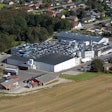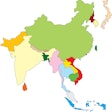The National Farmers' Union (NFU) warns that tightening European Union regulations on crop protection, plant breeding and genetic technology is threatening European crop yields and quality. The NFU represents farmers and ranchers across England and Wales.
NFU crops board vice-chairman Mike Hambly told European Commission officials, member state experts and industry stakeholders that regulations would also lead to an increased reliance on imports from areas of the world where standards of production cannot be guaranteed.
"Where technology is denied to European farmers, waste will increase because we cannot protect our crops, yields will fall and we won't be able to compete with imports," Hambly said. "The impact will be that Europe will have less influence on how its food is produced and the EU's already substantial net imports will grow.
"A recent German study estimated the EU net imports of food would take an area the size of the entire territory of Germany to produce. Further to that more land will be needed as European yields decrease and crop losses pre- and post-harvest increase."
Hambly said the union's recent decision to restrict the use of certain neonicotinoid seed treatments and the decision of feed producer Monsanto to give up on developing biotechnology in crops for Europe were two examples of where the European institutions were failing agriculture.
"We also have concerns over the management of mycotoxins," Hambly said. "Without crop protection products that can help limit the formation of disease, yields are going to fall and at the same time levels of mycotoxins could rise. Farmers have an excellent record of managing the risk of crop contaminants and keeping them out of the supply chain but the commission is not making our lives any easier when tools in use elsewhere are denied to us here" he said.
However, Hambly added that the commission was putting science first in developing new regulation on mycotoxins, particularly the presence of T-2 and HT-2 mycotoxins in food and feed.
"Investments in understanding and controlling mycotoxins are being made through improved understanding of fusarium and other plant diseases, but not as fast as crop protection products are being removed by regulators. We remain concerned that with restricted plant genetics and the loss of active ingredients against disease, control of mycotoxins will be compromised and then the threat of regulation could return," he added.


















